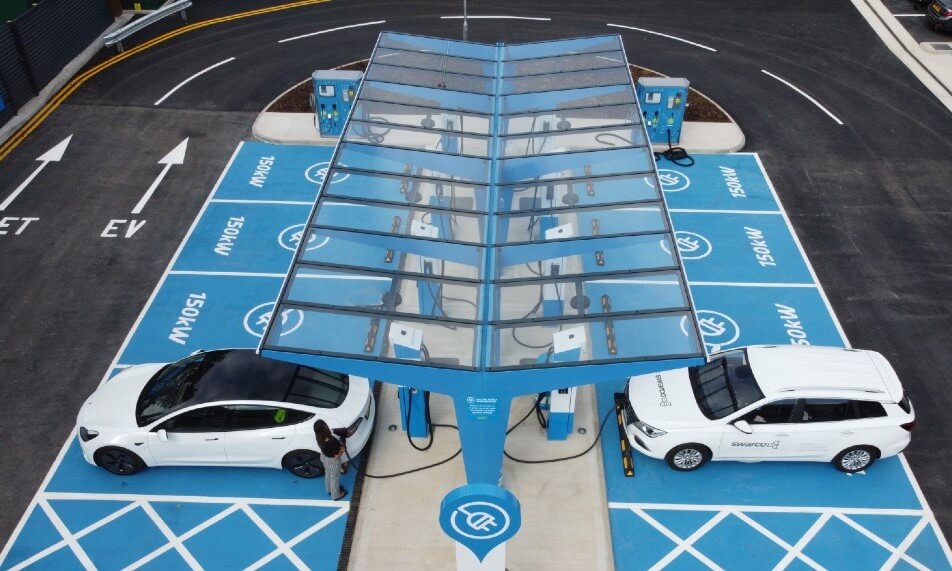We take an in-depth look at the impact of South African EV funding and how it will affect local investment.
Last year, it became clear that South Africa was exploring significant increases in its support of electronic vehicle (or EV) development. Specifically, the country essentially held up the finalisation of a climate aid package worth USD 8.5 billion over its desire to designate electric vehicle funding.
At the time, the climate aid package was set to include assistance from a handful of friendly nations and lenders, and was meant to help South Africa “wean itself off coal,” as reports put it. When South African officials indicated that they wanted a significant portion of the aid package to be directed toward a transition to electric vehicles, lenders balked. At that point, South Africa had suggested an allocation of R128 billion toward EV spending – about USD 1.54 billion today.
Follow Double Apex on Instagram and Facebook where we share more car content.
Moving Towards EVs
While this proposal was met with low enthusiasm, the mere suggestion by South Africa shined a light on the importance that such a transition toward electric vehicles ultimately be made. On the one hand, investment in this emerging sector fits South Africa’s goals of bringing about a more environmentally responsible economy.
As of the time of the country’s initial R128 billion EV investment proposal for its climate aid package, reports pointed out that South Africa was the world’s 13th-highest greenhouse gas emitter. It also relied on coal for some 80% of its total energy production (a number the aid package was principally aimed at reducing). A move toward EV transition would in theory go a long way toward reducing that greenhouse gas production and bringing about a cleaner society.
Evolve or Die
Perhaps even more pressing for South Africa, however, was the economic incentive behind its R128 billion EV investment proposal. In the past, the South African auto industry has been one of the nation’s primary drivers of foreign investment. However, the bulk of the country’s vehicle exports have historically gone to Europe – up to 70%, in fact. This has been a beneficial arrangement in the past, but it is now one that appears to be on a short path toward extinction, if nothing changes in the South African market.
Europe is swiftly transitioning away from ICE vehicles, with prohibition on all internal combustion automobiles scheduled to be in effect by 2035. This means that if South Africa does not begin to replace traditional production with EV manufacturing, a crucial source of foreign business is virtually guaranteed to dry up – and soon.
On Hold
In the end, the R128 billion toward EVs from the climate aid package did not fully come to fruition. South Africa has, however, scheduled for more funding to be directed to EV manufacturing. A budget set to come into effect late in October will see more money directed to this emerging industry, with some help from assorted international funding grants (such as Drive Electric’s LEAP Fund, which is funding the so-called “Electric Mission” to expand clean driving throughout the country).
There is not a single, sweeping investment or an all-encompassing lump sum being thrown at the problem. But South Africa is setting up a more urgent transition toward an emission-free vehicle market. This is undoubtedly good news for the climate, both in South Africa and in the world at large. The interesting question moving forward, however, may be what the beginnings of the EV revolution in South African EV funding means for investors and buyers.
Now’s The Time
Where industry-level investment is concerned, other nations can now look upon South Africa with renewed hope of long-term potential. As stated previously, without substantial investment in electric vehicles, South Africa risked its large auto production industry becoming all but obsolete.
The traditional, largely European investors in said industry would have had little incentive – and, with the eventual prohibition on internal combustion vehicles, little ability – to keep buying from South Africa. As things now stand, however, there is legitimate hope that EV production will increase to the point that South Africa remains a reliable supplier of vehicles.
Private Investors
As for private investors, there is now renewed incentive to explore share prices and stock potential as relates to the South African EV industry. Notably, this also comes at a time when a trend toward mobile investment is enabling more people to explore share markets in the first place. Recent reports have indicated that mobile connections throughout South Africa now represent 187% of the total population, with four million more such connections in 2023 so far than in 2022.
This speaks to vast increases in the use of mobile devices, with online trading platforms accounting for some of the activity. Through such platforms, individual consumers are now able to access local and international stock markets alike; they can explore the latest prices, analyze price trends, and buy into stocks that show potential. And thanks to the news regarding expanding EV investment, companies relating to electric vehicle production are positioned to be some of those very stocks that private investors take an interest in.
New Players
While it would be hopeless to attempt to provide an exhaustive list of EV-related stocks suitable for private investment, there has been some news regarding the large auto companies that are likely to drive the EV revolution forward in South Africa. For instance, BMW South Africa has made it known that it will be pouring R4.2 billion into its Pretoria plant in order to “electrify” operations –– the goal being to produce electric and hybrid vehicles to then export around the globe. Additionally, it is clear that Volvo, Great Wall Motors (under Haval Motors South Africa), and Build Your Dreams will all be launching EVs in South Africa in the near future.
Beyond actual auto manufacturers, there will also be material- and resource-related companies that private investors would do well to observe through their chosen trading platforms. Some such EV-adjacent companies trading on the JSE have already been identified, such as Glencore (which produces the vital electric vehicle resources of nickel, copper, and cobalt) and Anglo American Platinum (which deals in platinum). Companies like these will have potential as long as the EV market in South Africa is seeing surging investment.
A New Horizon
All in all, increased funding for EVs in South Africa makes for an exciting opportunity. While the change looks to be gradual, the country is clearly committed to revolutionizing its auto production in favour of EVs. As a result of this commitment, near- and long-term opportunity abounds for industry-level investors and private traders alike.
We hope this has shed some light on the outlook for the South African auto industry, and please come back to our site for more great car-related content soon.






Leave A Comment